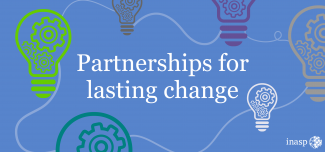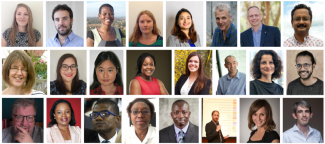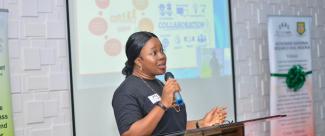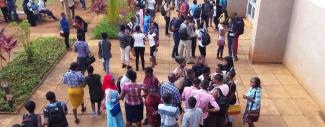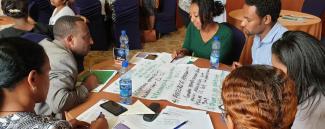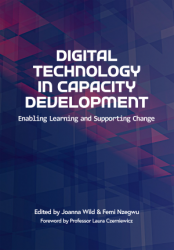Since INASP’s inception more than 30 years ago everything we have achieved and everything we have learnt has been in collaboration with our partners in the Global South, but we’re committed to making INASP and our work increasingly Southern-led and Southern-delivered. In this annual review we share examples of the work we and our Southern partners are doing to – from transforming university education so it can deliver for Africa’s young people, to enabling researchers to provide new answers to critical social and environmental issues, to making whole research systems more inclusive. In different ways they share a common aim: that Southern knowledge, ideas and expertise can improve human life, health and wellbeing and that of the planet. INASP’s Executive Director, John Young, offers his reflections.
Southern leadership – a view from board member Dr Judy Omumbo
One strategy to strengthen our Southern leadership has been to grow the number of Southern trustees on INASP’s board. Dr Judy Omumbo, an epidemiologist and researcher from Kenya, joined the board in July 2021. 18 months in, and Judy’s perspective has been invaluable as we develop the next phase of our programme.
Evolving our global team
INASP’s programme has always been rooted in the South, and we are proud of the partnerships we have developed over the years. But we want to shift INASP further, and to make the organisation and our work increasingly Southern-led, Southern-driven and Southern-delivered. This year we have welcomed several new Associates to the team, working together to support partners, shape new ideas and develop new projects. Read more about how we're knitting together a team of 9 staff and 15 Associates across 13 countries.
Equipping southern researchers to forge new collaborations and flourish in their careers
INASP’s AuthorAID programme, already a thriving community-led learning platform with 16,000 members from across the world, also made its own Southern shift. Two new community administrators joined the team from Nigeria and Nepal, and new local hubs were established, led by established community members. Read more about AuthorAID's evolution, and hear from Dr Funmilayo Doherty on her plans for the new AuthorAID Nigeria Hub.
Transformative learning to solve real world problems – preparing to scale in East Africa
Thanks to the Transforming Employability for Social Change in East Africa (TESCEA) initiative, four universities in East Africa have been able to rethink their teaching, redesign courses and improve learning for more than 3,800 students. Building on the success of phase one, INASP spent 2022 building new partnerships to scale this transformative teaching model to many more students and universities across East Africa and beyond. Jon Harle takes up the story.
Tackling the gender divide in southern research
For research and knowledge systems to be stronger, they also have to be more equitable. Addressing gender divides is key. With partners, we’re working to make learning and research environments more inclusive so both women and men thrive, from classrooms to labs to the policies and practices which govern research at national level. Mai Skovgaard explains the progress we’ve made.
What works to support Southern researchers? Learning through evaluation
An evaluation of INASP’s Global Platforms for Equitable Knowledge Ecosystems (GPEKE) project has generated plenty of food for thought as we plan our future programmes. John Young discusses the report’s encouraging findings.
Our 2022 learning papers and toolkits
Over the course of the year we’ve published a series of papers and toolkits to share our ideas and approaches - and crucially what we've learnt from trying to put this into practice:
- Parliaments and the National Statistics System in Ghana: A Critical Relationship for Evidence Use
- TESCEA Transformative Learning Toolkit
- TESCEA Programme Alignment Toolkit
- TESCEA Course Redesign Toolkit
- How Joint Advisory Groups have supported educational transformation in the TESCEA project
- Transforming learning by rethinking teaching
- Global Platforms for Equitable Knowledge Ecosystems (GPEKE): 2021 Annual Report
Also written in 2022, but just missing the 2022 cut-off is our new book Digital Technology in Capacity Development: Enabling Learning and Supporting Change.
Edited by INASP’s Joanna Wild and Femi Nzegwu, it explores how digital tools and approaches can be used as part of capacity development efforts. We will be exploring the themes of the book through a series of panel discussions in the coming months.

